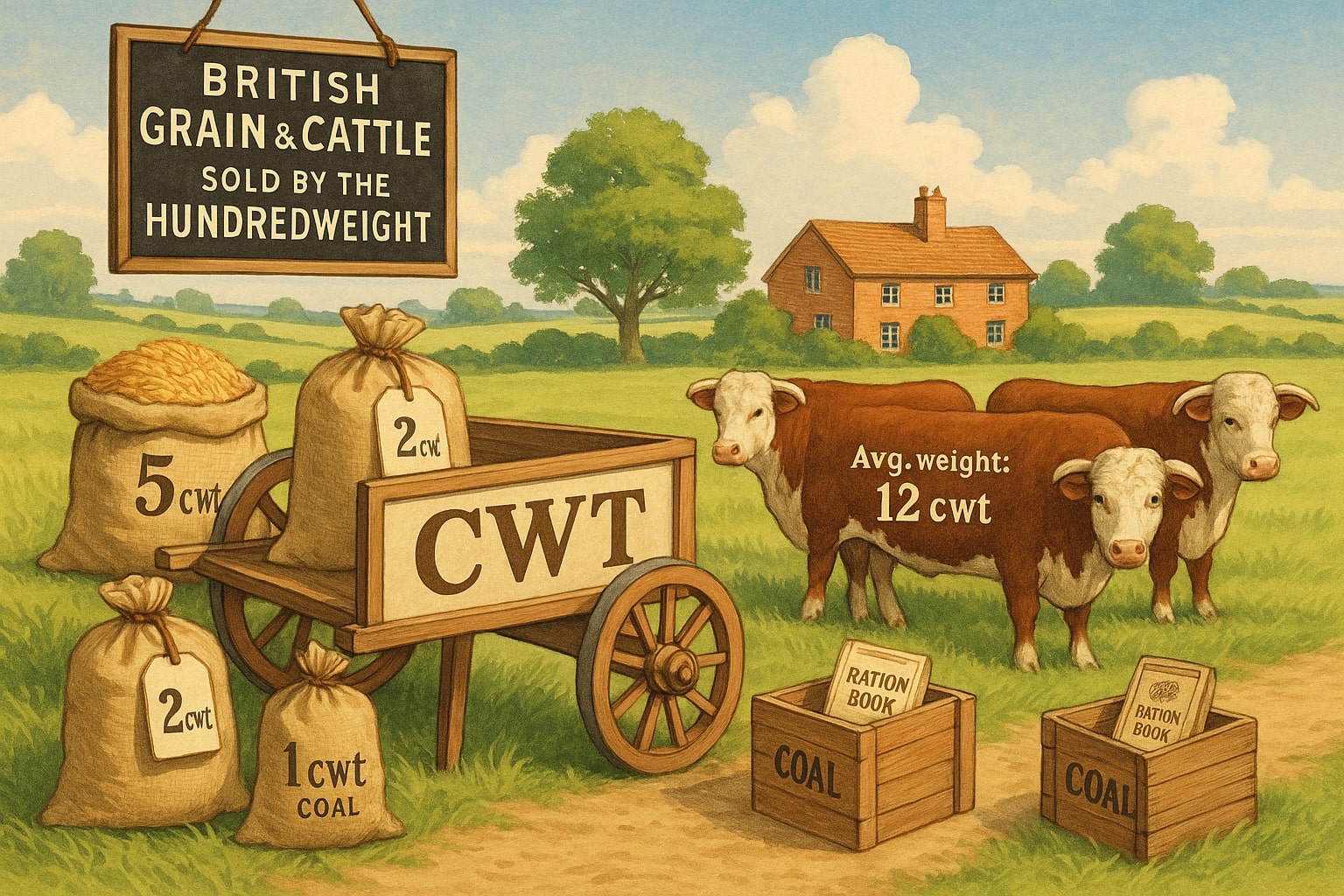kilograms to hundredweight – How to convert kg to cwt (UK)
Trying to convert kilograms to hundredweight (UK)? You’re in the right place. Whether you're working with British freight standards, historical trade data, or farming metrics, this guide will walk you through how to convert kg to cwt (UK). For broader needs, you can also try our unit converter or browse all weight conversion tools on JetCalculator.
Kilogram and Hundredweight UK - What do you know?
-
The kilogram (kg) is the base unit of mass in the International System of Units (SI). It is widely used around the world for measuring everything from groceries to industrial shipments. Kilograms are especially favored in international trade and scientific research due to their consistency and global recognition.
To explore more mass conversions, try our kilograms to pounds or kilograms to tons converters.
-
The UK hundredweight, also known as the long hundredweight, is a British Imperial unit of mass. It is primarily used in the UK and certain Commonwealth countries, particularly in agriculture and freight industries
🔍 Note: This is not the same as the U.S. hundredweight, which is only 100 pounds (~45.36 kg). If you're working with U.S. units, please see our kilogram to hundredweight (US) tool instead.
.jpg)
Conversion formula:
1 kilogram = 0.0196841306 hundredweight (UK)
To convert kg to cwt (UK), multiply your kilogram value by 0.0196841306.
Example:100 kg × 0.0196841306 = 1.9684 cwt (UK)
This calculation is useful in contexts such as exporting farm produce, analyzing old British trade records, or converting modern metric values into UK legacy systems.
Did you know?
-
Kilogram:
The kilogram was first adopted in 1795 in France, but it wasn’t until the late 1800s that it became standard worldwide, gradually replacing many old British and European units—including the hundredweight—in official settings. -
Hundredweight (UK):
The UK hundredweight formed the basis of another old imperial unit: the ton (UK), which equals 20 cwt, or 2,240 pounds—also known as the long ton.
British Grain, Cattle & Cwt: A Weighty Legacy
In the UK agricultural industry, the hundredweight played a major role well into the 20th century. Barley, wheat, and cattle were commonly sold in hundredweights. Historical market reports from the London Corn Exchange and publications like the Farmer's Weekly used cwt as a primary weight reference.
One interesting case: During World War II, the British government controlled food distribution using rations measured partly in cwt. For instance, coal allotments for homes were measured in hundredweights, reinforcing how deeply embedded the unit was in everyday logistics and resource management.
Today, while the metric system dominates, the cwt (UK) still appears in farming reports, older business contracts, and even some regional auctions. It’s a unit that bridges tradition and trade.

Conclusion
Converting kilograms to hundredweight (UK) is straightforward with the right formula and tools. Whether you're working in British agriculture, analyzing historical documents, or just need to convert bulk product weights, this conversion helps bridge metric and imperial systems effectively.
Explore more conversion tools to fit your needs:
-
Need to work backward? Use the conversion tools
-
The main weight conversion tools page

